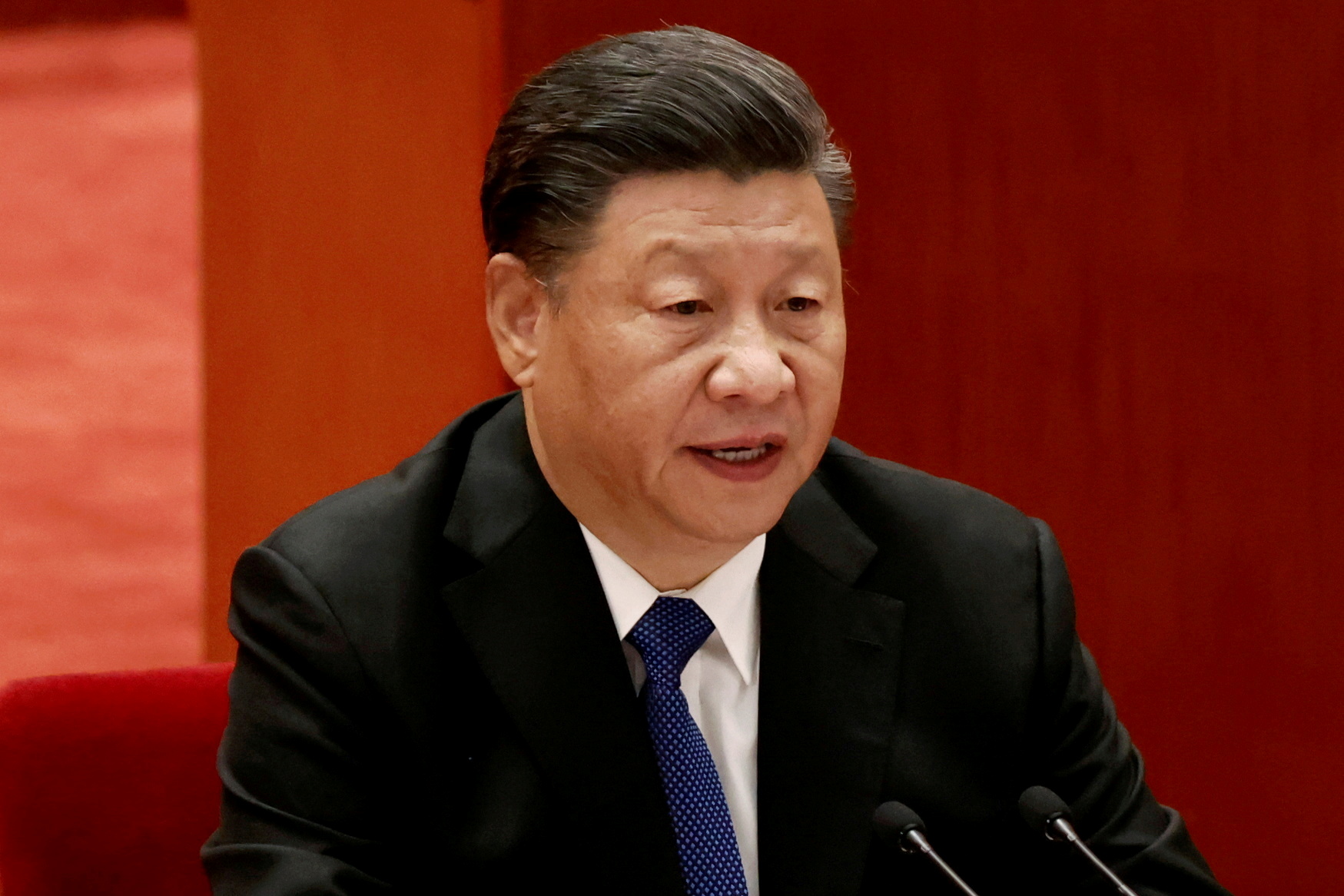Historic political meeting set to cement President Xi's authority
Sign up now: Get insights on Asia's fast-moving developments

This year marks the centenary of the ruling political party, and the resolution is expected to seal Chinese president Xi Jinping's mandate for leading the world's second largest economy towards "national rejuvenation".
PHOTO: REUTERS
BEIJING - President Xi Jinping is set to solidify his power when the Communist Party leadership adopts a landmark historical resolution this week at its sixth plenary session, paving the way for the Chinese leader to possibly resurrect the party chairmanship.
About 400 members of the party's decision-making body, the Central Committee, are meeting behind closed doors in the capital city over four days from Monday (Nov 8), in a crucial conclave ahead of the twice-a-decade party congress at the end of next year.
Official news agency Xinhua said Mr Xi delivered a work report and "made explanations on a draft resolution on the major achievements and historical experience of the CPC's (Communist Party of China) 100 years of endeavours".
This year marks the centenary of the ruling political party, and the resolution - only the third in the party's history - is expected to seal Mr Xi's mandate for leading the world's second-largest economy towards "national rejuvenation".
It is widely believed that he will, at the minimum, seek a third term as party general secretary at next year's congress, although party insiders have told The Straits Times that he could revive and assume the party chairmanship. It was abolished by paramount leader Deng Xiaoping in 1982.
Ahead of this week's summit, Xinhua had described Mr Xi as "a man who inherited a legacy but dares to innovate, and a man who has forward-looking vision and is committed to working tirelessly".
"On the new journey, Xi is undoubtedly the core figure in charting the course of history," it said.
Mr Xi has steadily consolidated power since he became the country's leader in 2012.
He was named "core leader" in 2016, a title previously conferred on Mao Zedong, Mr Deng and Mr Jiang Zemin. He also had his political ideology, Xi Jinping Thought, enshrined in the party charter in 2017, putting him on a par with Mao and Mr Deng.
"But the background to Xi's attempt to codify his political legacy in the party's history lacks the epochal significance of the ones made under Mao Zedong and Deng Xiaoping, who had issued theirs during periods of great upheaval in CPC history," said S. Rajaratnam School of International Studies' China researcher James Char of the impending resolution.
Historical resolutions are crucial political documents that set out an official historical narrative of the party, including its achievements and shortcomings, and the country's future direction.
The first such resolution was adopted in 1945 under Chairman Mao, while the second in 1981 was orchestrated by Mr Deng.
"For Mao, it was just after he had defeated all his rivals in an intense intra-party struggle; for Deng, the resolution helped to resolve serious questions about Mao's legacy and the party's legitimacy after Mao's demise," said Mr Char.
Mr Deng's resolution had critiqued Mao's failures for launching campaigns including the Great Leap Forward and the Cultural Revolution, with the latter described in the document as a "grave blunder".
Since taking power, Mr Xi has moved away from the policies and practices of his predecessors, intensifying a crackdown on corruption, emphasising environmental protection and launching a new "common prosperity" drive to narrow the widening income and wealth gaps in the country.
His wealth distribution campaign, which will involve a swathe of reforms that could bite the rich, could draw pushback.


